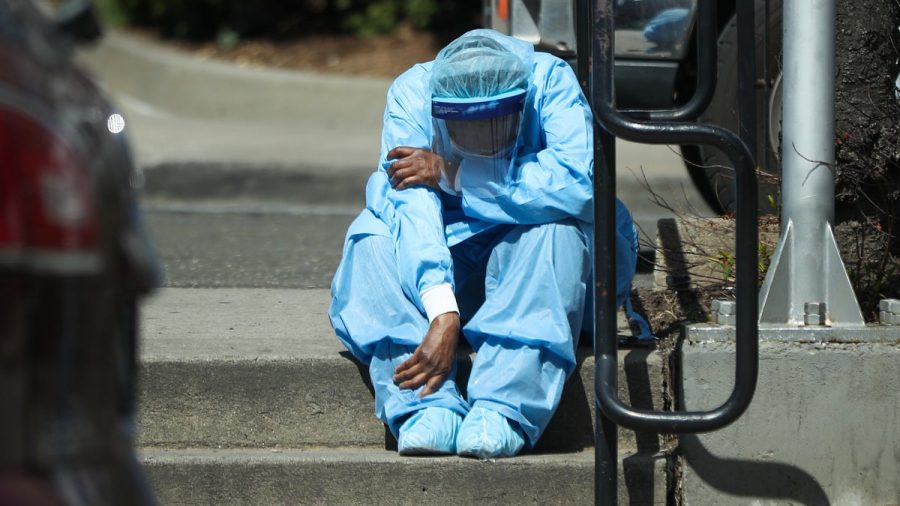COVID-19 Leads to Mental Illnesses in One Out of Five People
Recent studies have shown that 20% of people who recover from COVID-19 are diagnosed with a mental illness within 90 days.
December 8, 2020
There are people who do not take COVID-19 seriously because they believe that since the survival rate is so high, especially in young people, they will not be affected by the virus. While this is true, many people remain unaware of the possible side effects the virus has on some people. A potentially alarming new study done by researchers at the University of Oxford shows that one in five people who recover from COVID-19 are diagnosed with one or more psychiatric disorders.
The pandemic has already been leading to a decline in mental health for many people. Factors such as unemployment and isolation are common reasons why some people have developed mental illnesses during the pandemic. There has also been an increase in mental illnesses among adolescents. Common disorders that have stemmed from the pandemic include anxiety, depression, and insomnia.
The study done by Oxford analyzed data about COVID-19 patients in order to determine if the virus had direct links to mental illnesses and to also determine whether or not people who have had mental illnesses in the past are at higher risk. The study revealed that 18.1% of people who recovered were diagnosed with mental illnesses. Anxiety disorders were the most commonly diagnosed mental illness among recovered patients, but insomnia cases were also found to be very high. It also revealed that 1.6% of recovered patients over the age of 65 were diagnosed with early dementia.
These findings are important because they show how even though people survive, their health can be negatively affected even after they have recovered. Aside from mental illnesses, there are other symptoms that can linger even after a patient has tested negative. People who have lingering symptoms of COVID-19 have been dubbed as “long-haulers.” These long-haulers have symptoms such as fatigue, headaches, sensory loss, body aches, and more. According to the CDC, approximately 35% of people who have had COVID-19 have lingering symptoms which shows that surviving does not mean that a person has completed their fight against the virus.
According to Madison Liao (10), “It is really scary that 20% of people who recover from COVID-19 are diagnosed with a mental illness within 90 days, and because of this, people should be more cautious when it comes to the virus.” Mental illnesses are already a problem in society due to the pandemic, so now that they can also be officially be linked to COVID-19, it is important that people remember that even if they recover, their health may not be what it once was. Especially now that cases are rising in Orange County, people should remember that there can be consequences.






















Suhani Bhanvadia • Dec 16, 2020 at 10:59 PM
This is so interesting. When we hear about the virus, we only think about the physical impact but there is so much to worry about mentally because of the trauma and side effects.
Eunice Ahn • Dec 10, 2020 at 8:39 AM
People should take this virus seriously. Although some people may not be that affected physically, there are just so much more consequences that this virus can give to people. I hope that this pandemic can end soon and hopefully things will go back to how it was before the pandemic.
Tiana Salisbury • Dec 9, 2020 at 4:32 PM
This is a very interesting article! I did not know that mental illness was a side effect of COVID-19 and I also agree that we should be more cautious about the virus with this side effect in mind.
Nikole galea • Dec 8, 2020 at 9:54 PM
I think it is so interesting that some people’s opinion and lack for consideration could lead to so many harmful effects. I personally understand what it is like to see someone who loses themselves from the result of COVID and it heartbreaking. Hopefully there will be a solution in the near future. Great article!